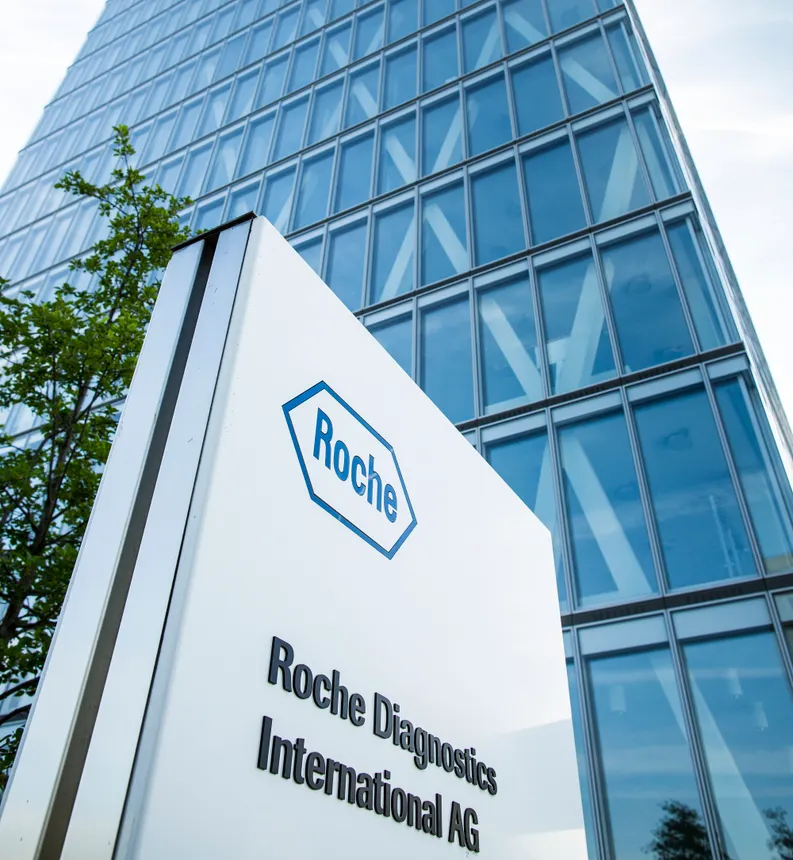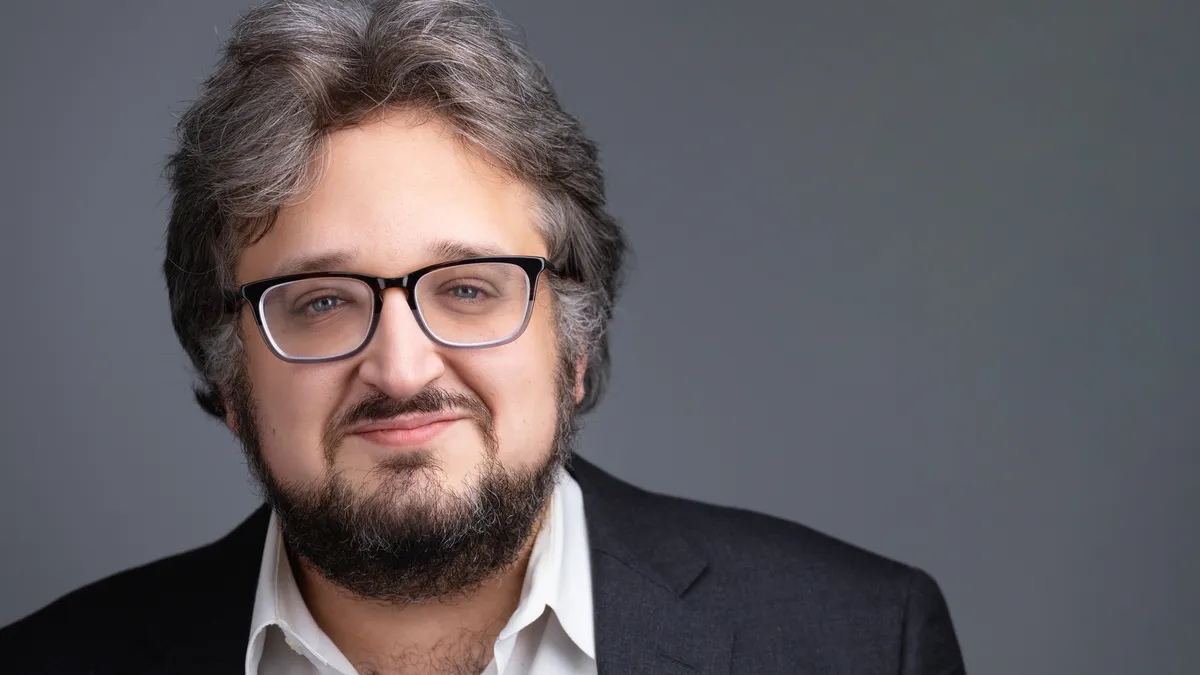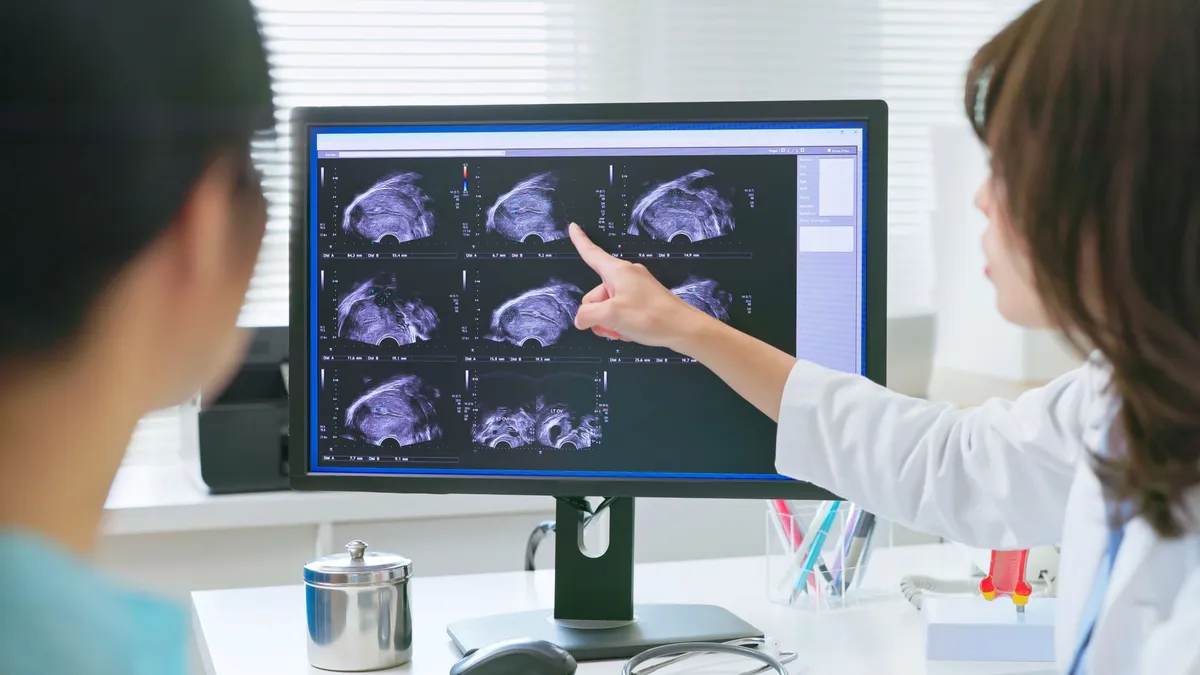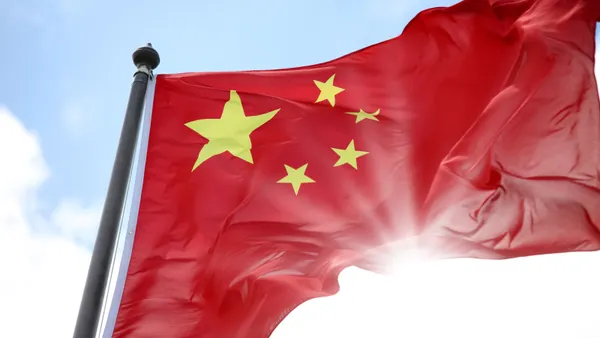2023 has been a busy year for Matt Gline, CEO of Roivant Sciences. Several subsidiaries in the biotechnology company’s “hub-and-spoke” network have produced promising clinical trial results, while Roche just paid $7 billion deal to acquire a gut disease drug from one of them.
The data and the deal have improved Roivant’s position, giving it cash in a year when many of its peers have struggled to raise funding.
“In a rough capital market, one lesson for me is there's no bad time to generate good clinical data,” said Gline.
Roivant hasn't avoided every bump in the road. On Monday, its subsidiary Priovant shared negative data for a drug candidate in lupus. And the company has distanced itself from founder Vivek Ramaswamy, as he continues a U.S. presidential campaign that has featured sharp criticism of the Food and Drug Administration.
BioPharma Dive spoke with Gline about Roivant’s plans for its new capital and the industry’s mood going into January’s tone-setting J.P. Morgan Healthcare Conference. The following conversation has been lightly edited and condensed for clarity.
BIOPHARMA DIVE: We spoke in January about your expectations for 2023. How has the year played out?
MATT GLINE: It’s been a rough year in the capital markets. But we had a great year and I think that's because of ultimately what the market valued. There's never a bad time to generate good clinical data. 2023 was a year when having phenomenal programs was quite valuable.
We've had great data from Vtama in atopic dermatitis. We generated obviously terrific data from our anti-TL1A antibody that ultimately resulted in the transaction with Roche. That, for us, was what carried us this year: head down, generating good clinical data.
If you can put a bunch of great programs together and generate data that matters, the rest falls into place. In a rough capital market, one lesson for me is there's no bad time to generate good clinical data.
Even so, the market challenges were real. We spent a lot of time this year thinking about how to capitalize ourselves, thinking about capital formation, thinking about a transition from our pre-IPO, pre-public shareholder base to our post-IPO, public shareholder base. That transition has been and continues to be something we're working on.
What is on your mind going into 2024?
GLINE: I try to avoid prognosticating on how the markets are going to look. I don't know if 2024 is going to be different. My first financial crisis in 2008 reminded me that often the darkest hour is the one that comes right before the dawn. Sometimes it takes peak despair before things turn around, and it feels a little bit like we're in peak despair right now, which could be in its own weird way a sign of optimism.
For us, raising capital and being properly capitalized has been a question about thinking really carefully about what we're doing and how it's going to find a home in the public markets. It means thinking about every source of capital critically and making the right decisions, including things like the sale of the anti-TL1A program. On one hand, it's a great program and Roche is getting a great asset. It's a little sad to see it go. But on the other hand, it transformatively separates us from the capital markets in terms of capital need, which is going to let us do some really exciting things.
How does it feel to pilot through all of this, especially after the deal with Roche?
GLINE: I'm super proud of our team. I'm proud of the programs that we brought together. I'm proud of the science that we conducted. I'm proud of the fact that the Immunovant team, for example, was able to take a program with a problem and develop around it in a next-generation program. I'm proud of our investments in our clinical teams for getting their heads around TL1A so quickly.
It feels good to have to have a year like that where everything works the way you want it to. It doesn't always work that way. I'm sure in the next weeks, or months, or year, we will have disappointing clinical data. We will be on the wrong side of the ship. Whatever it is, it's just the way our business works. But it feels great to be coming off the back of a 12-month period when we got a lot of calls right.

Product-focused biotechs like the ones Roivant builds seem to be more attractive this year. How has your model helped you?
GLINE: First of all, there are market environments where platforms are and are not given value. Great products always get valued. The product companies at some level are always en vogue. It's just a reminder that having promising medicines that will matter to patients is a pretty good antidote to a tough market. That was our experience this year.
Ultimately, our view has been to do good science, generate good data and the rest is going to fall into place on its own. The business model that we have where we're modular around small focused sets of products has been helpful to us this year.
One of the peculiar facts about biotech specifically is how so much investor interest in biotech flows from M&A exits. It's very rare that investors have a good experience holding a company that becomes commercial and launches products — not unheard of, but rare. Whereas a lot of what investors are trying to do is to catch a wave that results in an M&A outcome.
Most of the M&A outcomes that happen in the world are for single product biotech companies, like Telavant. It was effectively a single product company. If you look back at this year's M&A haul, it was mostly in that bucket as well.
But the truth is, even in times where platform companies are ‘hot,’ a lot of the biggest M&A exits are still product-focused exits. Big pharma companies sometimes buy platforms, but much more often they buy a product and if a platform comes along, they're happy with that.
Do you plan to look for more opportunities like the deal you struck with Roche?
GLINE: I am much more focused right now in the other direction. We've got this great fortune from the amount of capital we've got; I'm much more focused on spending it carefully and on finding great programs to work on, than I am on what our next ‘exit’ is. We would like to be thoughtful and capital efficient around all those decisions.
For the things currently in our pipeline, we see them as phenomenal game-changing programs in every instance for some population or for many populations. We're excited to continue developing those programs and see where they lead. We're always open to discussions when they come up, but it's not [as if] we're out hunting for another Roche. We're out hunting for another anti-TL1A.
Roivant’s share price has been on a roller coaster ride this year, even when “Vants” have come out with positive data. What does that say about how investors view biotech right now?
GLINE: This may not be the most popular comment in the world, but I think it's important to realize that investors are not arbiters of taste.They're not even at some level philanthropically trying to pick the best science. I think it often correlates with their own success to do a good job picking good science, but they're out there trying to build a portfolio that works for their business model. Different investors have different business models.
Broadly, the markets over time seem to do a pretty good job of turning that mishmash of sources of capital into reasonable capital allocation decisions. But if you are a CEO of a biotech company, and you wake up every morning trying to satisfy the ‘tastes of the market,’ you're just going to wind up disappointed. You can't make everybody happy all the time.
Part of the reason for that is people want different things depending on who they are. After our anti-TL1A transaction with Roche was rumored over the summer, we had investors telling us we'd be idiots to do the deal and investors telling us we'd be idiots not to do the deal. If you try to follow the whim of the market, you're just going to wind up with a lot of contradictory guidance.
There's been plenty of instances where good data or good outcomes have resulted in peculiar stock price reactions. It's a tough thing to call.
What’s the current sentiment in biotech as we head toward the J.P. Morgan Healthcare Conference?
GLINE: My guess is that, no matter what the market looks like, people are going to try and put on their best optimistic face for 2024. If it's still going down, they're going to say we're at the bottom. If it's going up, they're going to say we’re past the bottom.
Behind the scenes, it's been a tough time to be a biotech leader. There's a lot of bruised people out there whose companies have done everything they think they were supposed to do, but they don't have the access to capital. A bunch of companies have been shut down or had to do layoffs. People are tired. I think you'll hear the tired in people's voices mixed in with the optimism.
No one really knows where the ball is right now. In 2021, if you announced that you had the right kind of discovery platform, people would line up behind it. Over the past year, if you announced you had the right AI program, people would line up behind it. I don't think people totally know what the equivalent is for 2024.
It's a fascinating moment to be a biotech CEO because we are living in an era of amazing clinical data and scientific outcomes. The first CRISPR therapy is now approved [in the U.K.] and there are some really exciting things happening in CAR-T for immunology. We're coming off the back of this incredibly validating moment through the COVID-19 pandemic on mRNA vaccines.
This Cambrian explosion of new modalities and science should be a fundamentally optimistic, exciting moment in biotech. But between the [Inflation Reduction Act], capital markets, industry environment and the possibility of macro-economic turmoil, it feels bad out there. It's a weird, discordant combination.















